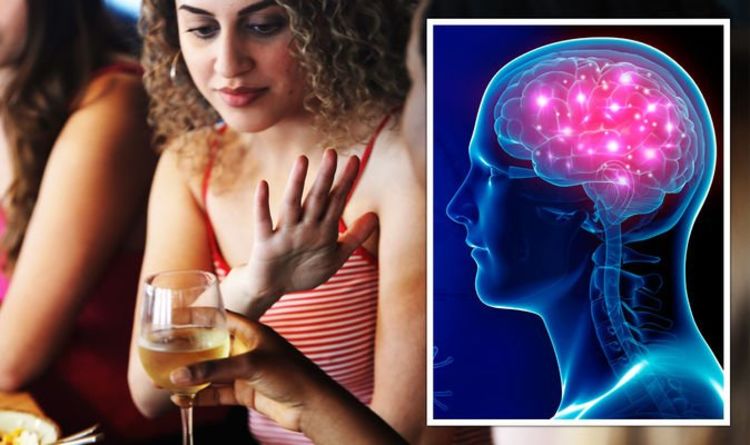
Many Britons will challenge themselves to give up drinking for Dry January or may have resolved to drink less alcohol this year. Even if you only drink on occasion, you are likely to notice symptoms of withdrawal, and these become more severe the more you drink. Although some of these symptoms can be unpleasant, in the long run, cutting down your alcohol intake is in the best interests of your health.
Barbara Santini, a psychologist, joins Express.co.uk to explain what happens to your body when you give up drinking.
Ms Santini said: “Going alcohol-free in January can improve your health and overall life quality. Practising dry January is a great way of cleaning your body system.”
If you are an excessive drinker, alcohol withdrawal can be extremely dangerous, so you should seek medical help to support you as you begin recovery.
DrinkAware UK has lots of helpful information about giving up alcohol, and support you can access anonymously if you need.
Even if you don’t consider your drinking excessive, if it worries you, reaching out for help now could prevent developing more serious problems down the line.
READ MORE: Diabetes: Doctor shares worst breakfast choices for blood sugar
If you were having a glass of wine or pint of beer every day, you will be saving money and saving calories.
Six pints of beer a week equates to 1080 calories, whereas six glasses of wine is around 960 calories: that’s almost five chocolate bars.
As time goes on, you may notice your skin looks brighter and it could contribute to lowering your blood pressure.
If you’re struggling with giving up drinking for a short period of time, you might want to consider accessing some support.
You don’t need to be an “alcoholic” to reassess your drinking habits.
If you notice troubling signs about your relationship with alcohol, you could benefit from speaking to a healthcare professional.
If you’re a heavy drinker
For people who are drinking excessively regularly, alcohol withdrawal can be a very serious experience.
Although giving up alcohol is the best thing for your health, you may have to follow a supervised plan to safely withdraw from alcohol.
This is because alcohol is a physically addictive substance.
The NHS says: “If you have become physically dependent and need to stop drinking completely, stopping overnight could be harmful.
“You should get advice about this and about any medicine you may need to do this safely.”
According to the NHS, symptoms indicating you might need medical help to stop drinking include:
- Anxiety after waking
- Sweating and tremors
- Nausea or retching in the morning
- Vomiting
- Hallucinations
- Seizures or fits
If you need support, you’re worried about your drinking or someone else’s drinking, you can call Drinkline, the national support line, in complete confidence on 0300 123 1110.
Published at Sun, 16 Jan 2022 10:58:00 +0000
Alcohol withdrawal symptoms: What mild to moderate drinkers will notice this Dry Jan













